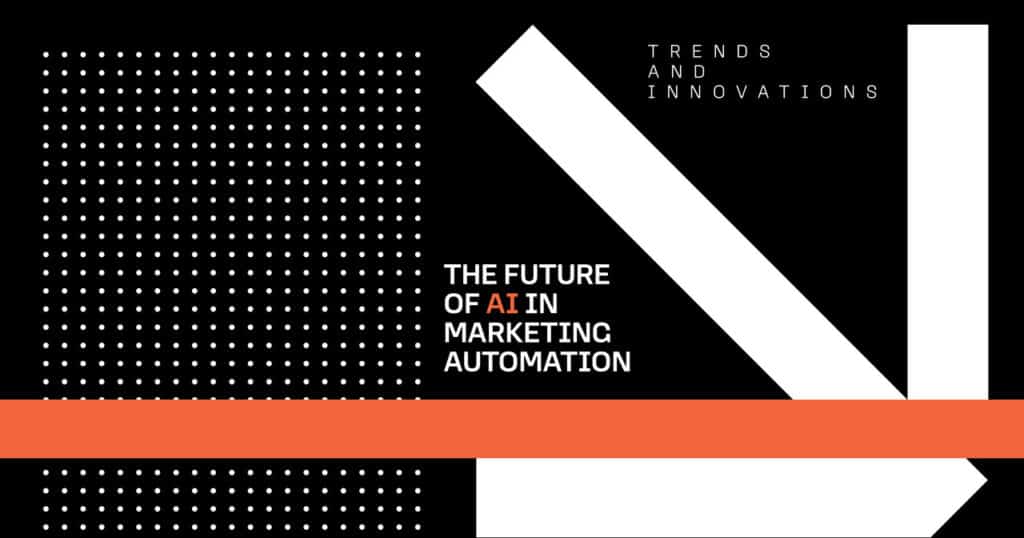Business evolution in an increasingly competitive digital ecosystem heralds the game-changing entity called artificial intelligence in marketing automation. With the addition of AI to the marketing playbook, brands can now achieve unprecedented levels of efficiency, personalization, and scalability.
This article will touch on the state of AI in marketing, including some of its core benefits, ground-breaking technologies, emerging trends, and actionable advice for businesses looking to succeed in this AI-driven world.
Introduction to AI in Marketing Automation
AI in marketing automation is changing the way brands interact with audiences. Traditional marketing automation may only involve scheduling and posting or sending standardized emails. However, AI enables more advanced systems to function by analyzing data in real-time, predicting outcomes, and even personalizing marketing with extreme precision.
The shift to AI marketing strategies ensures that businesses can meet customer expectations with precision and relevance. From chatbots to advanced analytics, machine learning in marketing has become an essential tool for creating meaningful connections and driving revenue.
Current State of Marketing Automation with AI
The integration of AI in marketing automation is no longer a future aspiration but a present reality. Businesses across industries leverage AI to:
| Streamline Operations | Making content distribution and ad bidding machine-like, even leading to the self-ignition of marketing leads. |
| Enhance Customer Engagement | AI-powered chatbots, assistants, and even personalized communication tools make engagement richer and more satisfying. |
| Optimize Campaigns | Predictive analysis and machine learning can help create the best path to attain excellence. |
| Data-Driven Decision-Making | Real-time data analysis helps marketers move quickly for changes in their customer base. |
Brands using AI marketing strategies experience a much higher engagement rate, lower costs, and better overall efficiency, so here’s the future of AI in marketing.
Benefits of AI in Marketing Automation
The benefits of adopting AI include the following, enabling marketers to deliver maximum results:
- Hyper-Personalization. AI delivers content, recommendations, and offers based on individual preferences.
- Efficiency Boost. Automation of mundane tasks frees marketers to focus on creative and strategic initiatives.
- Data-Driven Insights. AI analyzes vast datasets to uncover patterns and opportunities, enabling smarter decision-making.
- Improved ROI. Optimized campaigns, predictive targeting, and real-time adjustments lead to a higher marketing ROI.
- Customer Experience Enhancement. AI offers consistent, relevant, and timely interaction that helps in creating loyalty in customers.
Key AI Technologies Shaping Marketing Automation
Machine Learning
Machine learning in marketing means a set of algorithms that observe data, learn patterns and make predictions. Examples include:
- Personalized recommendations are available on Amazon and Netflix.
- Dynamic models of pricing for e-commerce.
- Customer segmentation on behavioral insights.
Predictive Analytics
Predictive analytics will turn raw data into action-driven predictions to help businesses understand and serve their customer needs efficiently. This underlies many AI marketing strategies that help accurately target and time a campaign.
Natural Language Processing (NLP)
NLP makes it possible for machines to read, interpret, and create human language. These applications are found in many areas of marketing, which include the following:
- Sentiment analysis that will explain customer feelings.
- AI-powered chatbots to deliver hassle-free services.
- Content development for articles, social media, and advertisement copy.
Future Trends in AI for Marketing Automation
The future of AI in marketing is the hub of innovation and opportunity. Emerging trends are as follows:
| Hyper-Personalized Campaigns | AI will help marketers provide content that suits the needs of an individual in real-time. |
| Voice Search Optimization | AI-based tools will optimize content based on voice search queries as smart devices continue to gain momentum. |
| Augmented Reality (AR) Marketing | AI will combine AR experiences with customer insights for immersive brand interactions. |
| Autonomous Campaign Management | Campaigns will be run by fully automated systems, analyzed, and strategies adjusted with minimal human intervention. |
How AI Personalizes Customer Experiences
AI marketing revolves around personalization. The most advanced algorithms can take in various data, from purchase history to browsing behavior and social media usage, to create a unique journey for every customer.
Examples of AI personalization include:
- Dynamic Email Marketing. Emails that adapt based on real-time user activity.
- AI-Driven Web Personalization. Websites that adapt content, offers, and recommendations to the visitor’s profile.
- Proactive Customer Support. Predict issues and address those issues through automated responses or alerts.
These features make the case clear why AI for marketing automation is necessary to deepen customer relations and get loyal customers.
Challenges and Ethical Considerations in AI Marketing
There are several reasons for implementing AI in marketing. These are, however not free of barriers:
- Privacy of Information. Respect for policies such as GDPR and complete transparency when data is used.
- Algorithmic Bias. Sometimes, these algorithms unintentionally spread biases, and personalization and targeting are erroneous.
- Over-Automation. Balancing the scales of automation with human touch in customer interactions.
Businesses have to tackle these challenges through ethical practices and a proper data governance framework.
Case Studies: Successful Use of AI in Marketing Automation
Case Study 1: Netflix’s Recommendation Engine
Netflix uses machine learning in marketing by suggesting content based on a user’s preferences, and that is the reason behind such massive customer retention.
Case Study 2: Sephora’s AI Chatbots
Sephora uses AI chatbots to offer personalized beauty advice, leading to satisfied customers and sales.
Case Study 3: Coca-Cola’s Social Listening With AI
Coca-Cola uses the power of NLP-empowered tools to analyze what people are saying on social media, helping them understand what will appeal to them.
Preparing for the Future of AI-Driven Marketing
Preparation for Future AI Marketing
- To Gain a Competitive Advantage in Ai-Driven Marketing. Companies should invest in AI tools, which is the adaptation of platforms aligned with the marketing goals.
- Train Teams. Empower employees to utilize AI better.
- Prioritize Data Quality. Ensure the data used for AI is relevant, accurate, and ethical.
- Test-and-Learn. Try out AI applications and improve strategies based on the learning.
Final Discussion on the Evolving Role of AI in Marketing
AI is no fleeting fad, and it defines the future of marketing. A company’s ability to attain scalable growth, provide exceptional personalization, and adjust its campaigns for the perfect hit depends on integrating AI into marketing automation. Being current with these technologies is simply how to stay relevant today in an ever-evolving digital space.
Call to Action
Ready to unleash the potential of AI in your marketing? Contact us today to discover how AI marketing strategies can transform your campaigns, enhance customer experiences, and maximize your marketing ROI!
FAQ’s
- How does AI improve marketing ROI?
AI optimizes marketing ROI by automating repetitive tasks, personalizing customer experiences, and providing data-driven insights for better decision-making.
- What are some examples of AI in marketing automation?
Examples include predictive analytics for targeted campaigns, AI chatbots for customer support, and recommendation engines like those used by Netflix and Amazon.
- What challenges come with using AI in marketing?
Key challenges include data privacy concerns, algorithmic bias, and the risk of over-automation, which may reduce the human touch in customer interactions.
- How can small businesses use AI in marketing automation?
Small businesses can adopt affordable AI tools for email marketing, social media scheduling, and customer segmentation to improve efficiency and engagement.
- What are the future trends in AI for marketing automation?
Trends include hyper-personalized campaigns, voice search optimization, augmented reality marketing, and fully autonomous campaign management systems.









